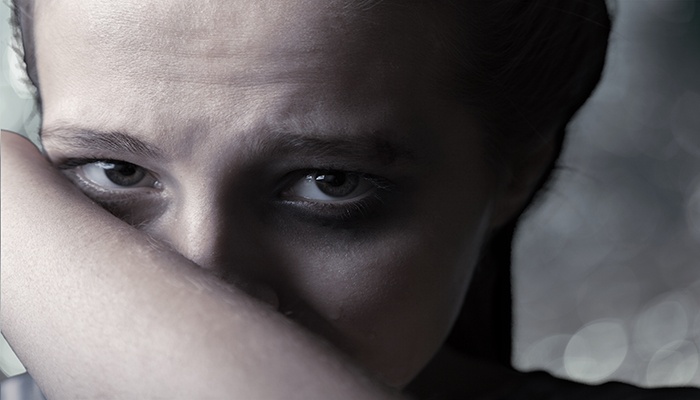Death anxiety, also known as thanatophobia, is the persistent fear or anxiety related to death or dying. This form of anxiety can range from occasional uneasiness to overwhelming fear that affects daily life. Although it’s natural to contemplate mortality, for some individuals, thoughts of death can become intrusive and debilitating. Understanding the root of this anxiety and learning how to cope with it is essential for emotional well-being and living a more fulfilling life.
What Is Death Anxiety?
Death anxiety involves a deep fear of one’s own death or the death of loved ones. It may stem from fear of the unknown, worries about nonexistence, concerns over suffering or pain, or uncertainty about what happens after death. For many, death represents a loss of control, and this uncertainty can intensify anxiety. It is particularly common during major life changes, traumatic experiences, or after a personal loss.
This anxiety can manifest in several ways: obsessive thoughts, panic attacks, insomnia, or a constant sense of dread. People may also avoid topics related to death or feel extremely distressed by funerals, hospitals, or even the idea of aging.
Causes of Death Anxiety
Several factors contribute to death anxiety:
Existential Concerns: As self-aware beings, humans naturally question their purpose and the finality of life. This existential questioning can provoke fear of the unknown.
Religious or Spiritual Beliefs: Depending on one’s beliefs, the concept of an afterlife or lack thereof can either provide comfort or add to anxiety.
Personal Experiences: Witnessing or experiencing death, trauma, or illness can heighten fear, especially if these events were distressing or unresolved.
Mental Health Conditions: Anxiety disorders, depression, or obsessive-compulsive disorder (OCD) can amplify fears about mortality.
Cultural Attitudes: In societies where death is a taboo topic, fear may intensify due to lack of open discussion or healthy coping strategies.
How Death Anxiety Affects Life
Unchecked death anxiety can negatively impact emotional, social, and physical health. People may isolate themselves, develop health-related anxieties (hypochondria), or avoid activities that remind them of mortality. It can interfere with decision-making, career planning, relationships, and general enjoyment of life.
In children, death anxiety may present as separation anxiety, nightmares, or excessive questioning about death. In adults, it might lead to existential dread, difficulty sleeping, or obsessive behaviors focused on health and safety.
Strategies to Cope With Death Anxiety
Although death anxiety is a powerful emotion, it is manageable with the right tools and support:
1. Open Conversations
Talking about death can help reduce its power over the mind. Sharing fears with trusted friends, family members, or a therapist can provide perspective and emotional relief. Open discussions about death normalize the experience and reduce feelings of isolation.
2. Mindfulness and Meditation
Practices like mindfulness and meditation encourage living in the present moment. These techniques help individuals let go of fears about the future and build a sense of inner peace. Guided meditations focused on acceptance and impermanence can be particularly effective.
3. Therapy
Cognitive-behavioral therapy (CBT) helps reframe negative thought patterns associated with death. Therapists can help individuals explore the origins of their fears and develop healthier coping mechanisms. In some cases, exposure therapy may be used to gradually desensitize individuals to death-related triggers.
4. Spiritual or Philosophical Exploration
Many people find comfort in religious or philosophical beliefs that offer meaning or continuity beyond death. Exploring spiritual practices, reading about different cultural perspectives on death, or speaking with a spiritual advisor can bring comfort and acceptance.
5. Journaling and Creative Expression
Writing about fears, questions, or thoughts related to mortality can serve as a powerful outlet. Creative expression through art, poetry, or music allows individuals to process complex emotions in a non-verbal way.
6. Healthy Lifestyle Choices
Regular exercise, balanced nutrition, and sufficient sleep support emotional resilience. When the body is healthy, the mind is better equipped to handle anxiety.
Embracing Life Through Acceptance
Paradoxically, acknowledging death can enhance one’s appreciation for life. By accepting mortality, individuals often gain clarity on what truly matters. This can lead to a deeper focus on relationships, meaningful work, personal growth, and joy in everyday experiences.
Rather than living in fear, many people find empowerment in living deliberately, knowing that life is finite. Acts of kindness, gratitude, and purpose-driven actions become more meaningful in light of this understanding.
Conclusion
Death anxiety is a common yet often unspoken fear. While it’s natural to fear the unknown, allowing this fear to dominate one’s thoughts can diminish the quality of life. Through open dialogue, mindfulness, therapy, and self-exploration, individuals can learn to manage death anxiety and find peace in the present moment. Ultimately, by facing death with courage and compassion, we allow ourselves to fully embrace the gift of life.







